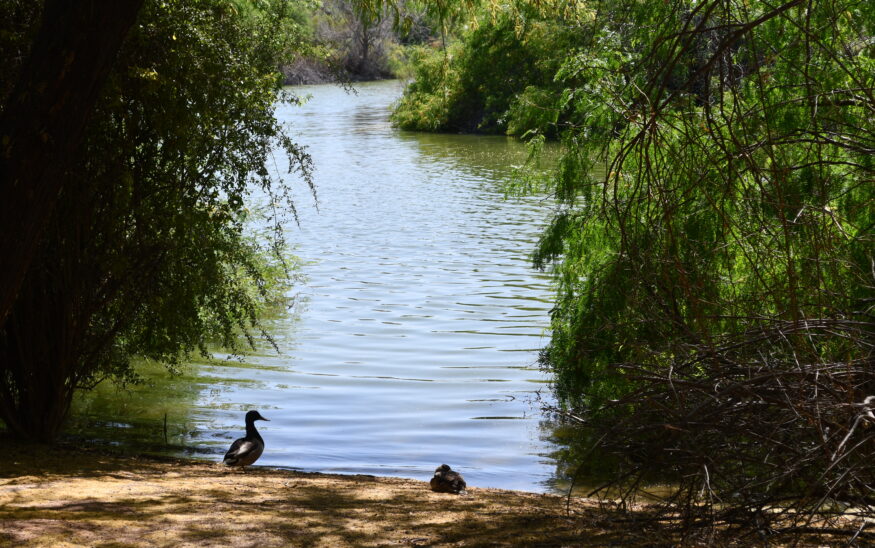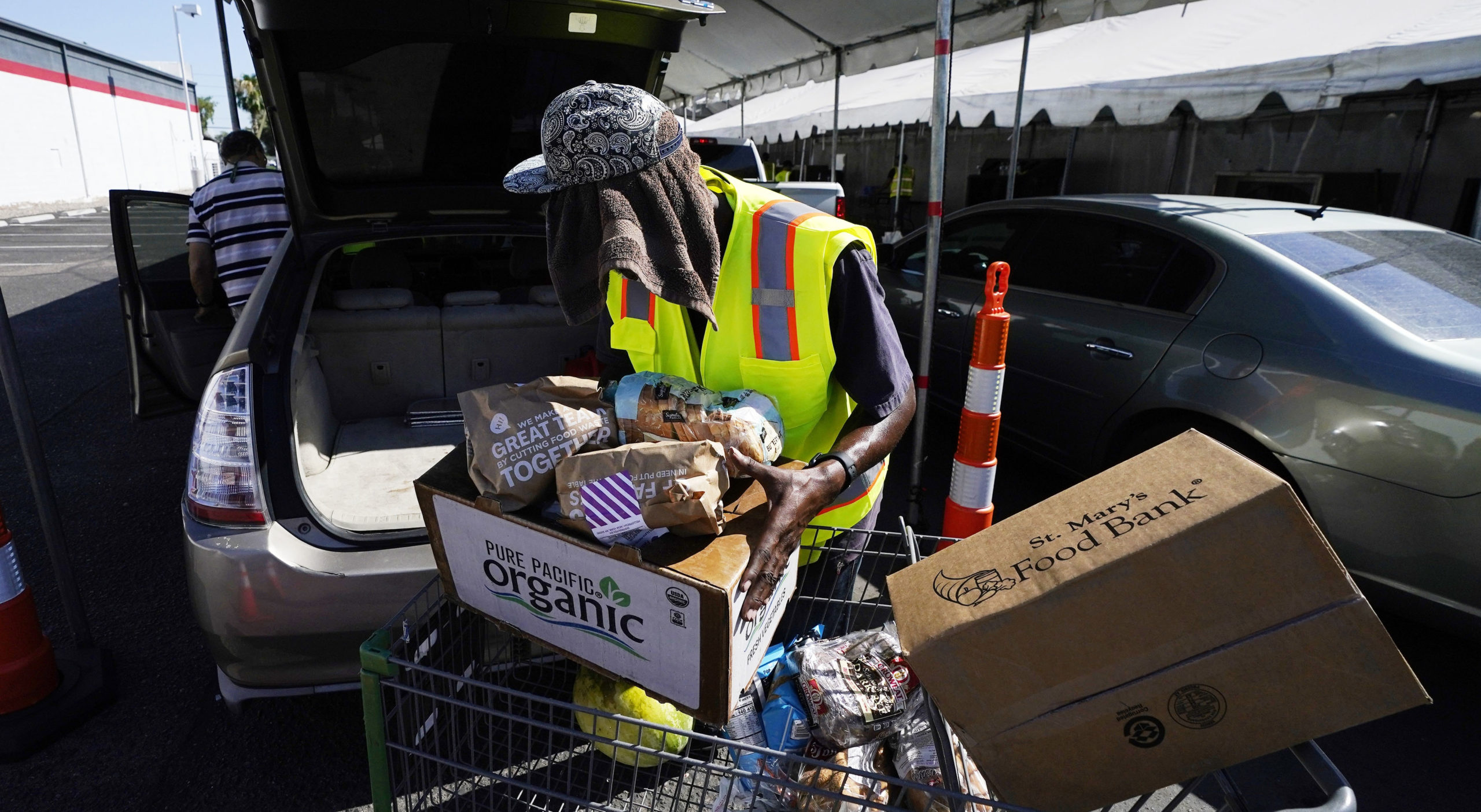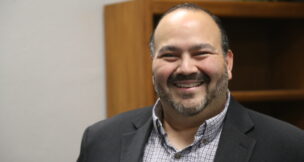Water Infrastructure Finance Authority to consider five proposals to shore up Arizona’s water supply
Bob Christie, Capitol Media Services//November 18, 2025//
Water Infrastructure Finance Authority to consider five proposals to shore up Arizona’s water supply
Bob Christie, Capitol Media Services//November 18, 2025//
Key Points:
-
Arizona’s water supplies have dwindled due to cuts in Colorado River supplies
-
Arizona’s Water Infrastructure Finance Authority may approve five imported water proposals this week
-
EPCOR’s proposal relies on a controversial pumping project in California’s remote southeastern desert
The board overseeing the state agency charged with finding new water supplies for Arizona is poised to approve as many as five water importation proposals, one of which could reignite decades of interstate controversy.
A conservation group and an Indian tribe warned the Water Infrastructure Finance Authority committee screening the projects that EPCOR’s apparent proposal is fraught with risk and can’t deliver the stable water supply Arizona needs.
Details of the five projects — two involving desalination plants and the others relying on wastewater treatment, surface water and an unidentified third source — remain secret until the full board of the agency known as WIFA meets Wednesday.
But the Fort Mojave Indian Tribe and the National Parks Conservation Association say it’s pretty clear EPCOR plans to rely on a controversial pumping project in the remote southeastern California desert — an area protected by environmentalists for decades.
And the conservation group believes EPCOR and the developer of the California desert project, Cadiz Inc. are relying on the ignorance of officials here about the Arizona project, which has faced vociferous opposition in California, to get some of the nearly $400 million in Arizona tax dollars that WIFA has to give away to develop plans to import water.
Canadian water provider EPCOR, which operates municipal water systems in several Arizona communities, most notably in the San Tan Valley on the southeastern edge of metro Phoenix, signed a memorandum of understanding with Cadiz on Aug. 1.
WIFA has not publicized any importation planned deemed controversial. And EPCOR, owned by the city of Edmonton in the Canadian province of Alberta, has made no public announcement of the deal to import the water into Arizona.
But the reason there are details on this plan is that Cadiz is a publicly traded company. And that enabled Capitol Media Services to access a notice it had to file with securities regulators about its memorandum of understanding with EPCOR.
The deal, if finalized, gives EPCOR exclusive rights to market 25,000 acre feet of water to Arizona annually from a project located in a remote section of the California desert, about 60 miles west of Parker. It also requires it to finance and build a section of pipeline to deliver the water.
The Cadiz project, which it has named the Mojave Groundwater Bank, relies on ancient groundwater located under an expansive desert valley. Cadiz plans to pump 50,000 acre feet per year for 50 years from the project and has tried for decades to obtain the necessary approvals to sell water to Southern California water providers.
An acre foot is about 326,000 gallons — enough water to cover an acre of land one foot deep and typically enough to supply three homes for a year.
Cadiz says its goal is to “sustainably deliver clean, affordable water to people who need it.” But the company’s proposal has been fought for 30 years by California politicians, conservation and environmental groups and federal agencies — at least when Democrats controlled them. So far, it has not delivered any water.
The project has passed a series of environmental reviews, but in 2019, California passed a law requiring a state agency to add another layer of approvals.
Because its pipelines would cross federal land, it also needs federal agency approval.
The first Trump Administration greenlit the proposal, but a federal judge blocked its approval of a pipeline across federal lands. The Biden Administration then pulled the federal approvals, but the company this year signed an agreement with the Department of the Interior to support development of its groundwater bank.
The tribe and conservation groups say the pumping will imperil springs that provide the only water within 1,000 square miles and nourish wildlife, including bighorn sheep. And they say that once the water is gone, the vast desert region won’t be able to support people, either.
Neal Desai, the regional director for the National Parks Conservation Association, testified to the WIFA board panel last week. He said in an interview that his group and the tribe are trying to ensure WIFA is aware of the controversial background of the pumping proposal, including opposition from California politicians like Gov. Gavin Newsom and its two U.S. senators.
“It’s been around for 40 years, and it doesn’t have a shovel in the ground because it would be a complete disaster,” Desai said about the Cadiz proposal.
“And so it seems like now they’re trying to find someone that might not know much about their project and target Arizona and see if they can get resources, because they’re striking out politically in California,” he said. “We’re just letting (WIFA) know that this is a very toxic issue that stands no chance of moving forward and only is going to bring them into a controversy … (it) will not help Arizona at all.”
An EPCOR spokesperson said the company couldn’t comment on the proposal because it’s in the early stages, but provided a statement saying that, as Arizona’s water supplies dwindle, it is focused on “sustainable solutions that preserve and expand water resources.”
“We explore many possibilities but only speak about a project once an agreement is in place and the project is ready to move out of the exploratory phase,” the statement said. “Until then, we cannot speak to any proposed project details, aside from noting that we carefully evaluate each opportunity and that balancing environmental stewardship with community benefit is central to our process.”
Cuts to Arizona’s Colorado River supplies in recent years have forced the state to expand its search for new water and for housing developers to seek out innovative ways to secure more water. Earlier this year, the state approved two Phoenix-area municipalities tapping a desert aquifer about 40 miles west of Phoenix.
Cadiz didn’t respond to an email seeking comment on its deal with EPCOR, which it revealed in a Securities and Exchange Commission filing.
In addition to the EPCOR purchase deal, the company is ramping up its financing, announcing earlier this month a $51 million loan from a small California tribe to fund its groundwater banking investments and an additional $400 million commitment by private investors for the project. It also previously bought 180 miles of pipe originally intended for the canceled Keystone XL pipeline to use in its water delivery systems, touting the purchase as a way to avoid new Trump Administration tariffs. It previously bought 220 miles of the abandoned El Paso Natural Gas pipeline to convert for water delivery.
Of the five proposals considered by the WIFA board committee in executive session last week, four were from EPCOR. In addition to the apparent California groundwater proposal, it also proposed a desalination plant, wastewater treatment to produce drinkable water, and new surface water sources.
Another desalination proposal under consideration is from the ACCIONA-Fengate Water Augmentation Alliance.
Acciona is a Spanish firm that develops plants worldwide. Fengate Capital is a private equity firm specializing in infrastructure investments.
Acciona and a construction firm won a contract last December to design and build a desalination plant in Carlsbad, CA. It already runs plants in Saudi Arabia, Australia and Florida, among others.
The proposals and presentations to WIFA’s Long Term Augmentation Committee by proponents were conducted in executive session, with no public or press observers, and the board cited state procurement rules requiring secrecy. The committee recommended projects to get taxpayer money, and four of the five are on Wednesday’s board agenda, including the EPCOR project that appears to involve Cadiz.
Wednesday’s meeting of the full board will finally see details of the proposals made public and decisions on which if any to fund made in a public meeting.
The WIFA committee initially received a third desalination plant proposal from an Israeli attorney who sought a deal for a new plant with WIFA shortly after the agency’s mission was expanded in 2022 to include finding new water sources.
But in a surprising twist, the proposal by Erez Hoter-Ishay and the company he heads, ZARETAW LLC, didn’t pass muster with WIFA’s procurement officer and was not considered by the board committee last week.
Erez Hoter-Ishay, in 2022, brought an unsolicited proposal for a desalination plant on the Sea of Cortez to be built by an Israeli company, IDE Technologies to the WIFA board. It came just months after then-Gov. Doug Ducey and the Legislature approved the 2022 law expanding WIFA’s mission and promised to give WIFA $1 billion to fund new projects.
The Legislature never came through with all that money, leaving WIFA with only about $375 million – and a quarter of it must be spent on in-state projects.
Hoter-Ishay’s unsolicited proposal prompted questions from some lawmakers about backroom dealings. That’s because Ducey had visited Israel numerous times during his eight years as governor with an eye on new water technologies and called for the state to build a desalination plant in his 2022 state of the state address.
Hoter-Ishay was at the time working for IDE, an Israeli firm that has developed desalination plants since the 1960s in Israel, China, the U.S. and other countries, and runs plants in several countries.
Hoter-Ishay’s latest proposal was rejected by WIFA’s procurement officer because it failed to include required details in multiple areas. They include failing to identify a construction manager or lead contractor, failing to identify its investors, even though it said IDE Water Assets Ltd. was an equity partner, and failing to provide any financial statements or proof that it could obtain insurance.
Hoter-Ishay didn’t respond to requests for comment, nor did IDE Technologies.
The WIFA committee that reviewed the proposals conducted its deliberations since receiving the proposals in August in secret under state procurement rules. But that will now change.
“The board meeting coming up on the 19th will be very revealing,” Chelsea McGuire, WIFA’s executive director, said. “Obviously, we will know the results of these discussions in ways that I think the public and definitely our board are very anxious to see.”
She said the confidentiality of the procurement process will end at Wednesday’s meeting, with the public not only invited but encouraged to participate and provide comments on the proposals.
“Thanks for your patience as we do a little bit more in this procurement process, and then open it up to the process we’re all really excited for, which is the public sausage making,” she said.













































